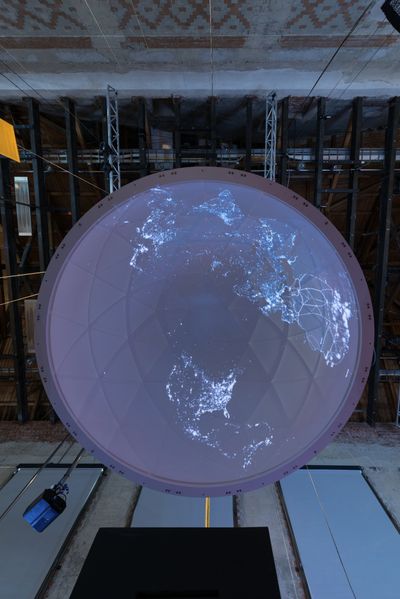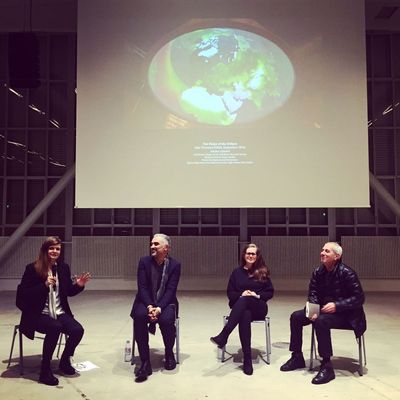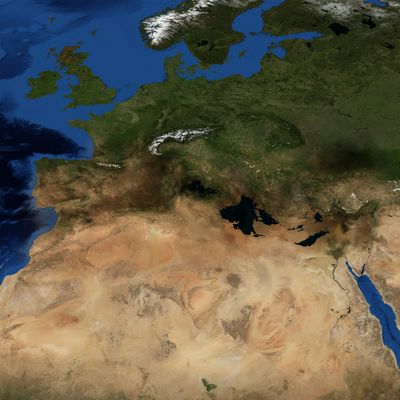Floating BodiesAdrian Lahoud
Adrian Lahoud’s research sets out a philosophical, scientific architectural history of scale as a problematic, drawing on case studies of postwar urban planning, territorial governance, and climate modelling. His research project on the Mediterranean Sea investigates the possibility of reestablishing the role of this ocean as a unifying territory in the age of the anthropocene.The lecture will be followed by a conversation with Adrian Lahoud, Marc Angélil, Emily Eliza Scott, and Milica Topalovic.
Adrian Lahoud is an architect, researcher, and educator. Prior to being appointed Dean of the School of Architecture and Head of the Architecture program at the Royal College of Art, Lahoud was Director of the Urban Design Masters at The Bartlett School of Architecture, and served as Director of the MA programme at the Centre for Research Architecture, Goldsmiths, University of London. He received his PhD from the University of Technology Sydney, where he taught for a number of years while running an award winning architectural practice.
Marc Angélil is professor and former dean of the Department of Architecture of ETH Zurich. His research at the Network City and Landscape and the Future Cities Laboratory in Singapore focuses on social and spatial developments of large metropolitan regions world wide. He is the author of several books and has also taught at the Graduate School of Design at Harvard and at the University of Southern California in Los Angeles. He practices architecture with his partners at agps in Los Angeles and Zurich.
Emily Eliza Scott is an interdisciplinary scholar and artist focused on contemporary art and design practices that engage pressing ecological and/or geo-political issues, often with the intent to actively transform real-world conditions. Currently postdoctoral fellow in the architecture department at ETH Zurich, she teaches on subjects ranging from the concept of “post-nature” to contemporary architecture ‘in the expanded field’ to the emergent geographies climate change.



